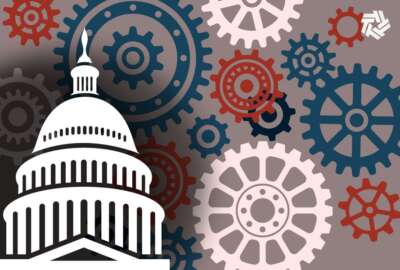Amelia Brust/Federal News Network

In today's Federal Newscast: A court awards some Oregon VA employees, added leave and back pay in a COVID-related case. An alleged transgression costs a major...
Copyright © 2025 Federal News Network. All rights reserved. This website is not intended for users located within the European Economic Area.
Peter Musurlian is a producer at Federal News Network.
Follow @PMusurlianWFED


